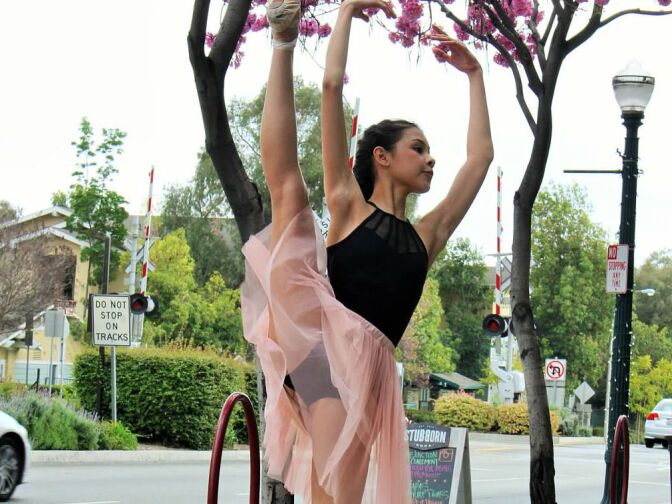Truth matters. Community matters. Your support makes both possible. LAist is one of the few places where news remains independent and free from political and corporate influence. Stand up for truth and for LAist. Make your year-end tax-deductible gift now.
This archival content was originally written for and published on KPCC.org. Keep in mind that links and images may no longer work — and references may be outdated.
After just one year of training, a ballerina goes to the big dance
Madeline Czekaj has only had one year of formal training, but she's already headed to the world's largest student ballet competition.
The Whittier High School sophomore will spend the next week in New York City for the Youth America Grand Prix, a huge scouting event where 1,200 dancers from around the world participate in classes under the watchful eye of directors and choreographers from prestigious dance schools looking to hand out scholarships.
"I try not to think about that," said Madeline, 15. "I’m really excited and I'm hoping that I get offered something. I just know that I have to just think about what I’ve been working towards and think of it as a regular class."
She does have some big dreams, though – like earning a scholarship from The Royal Ballet in London or Paris Opera Ballet.
Madeline first tried ballet when she was 10, and immediately fell in love with it. But because of her family’s financial circumstances, Madeline didn’t begin formal, rigorous training until she was 14.
"I could express myself through the moves without having to speak," said Madeline, who describes herself as shy in most other settings.
"When I’m on stage, I open up and I’m like a whole different person," she said. "It’s almost like my home."
After just a year taking classes nearly every day at the Anaheim Ballet dance school, she has a chance to turn her passion into a career.
"I seriously thought it was going to move slower and I would have some time to grow into it," said her mother, Sylvia Flores. She said between school and homework, her daughter is constantly practicing and watching videos of ballet routines online.
Madeline says she didn’t expect to be making a splash so soon, but she is inspired by another ballerina – the renowned Misty Copeland, who began training at 13.
"I find that amazing that she started late and now she’s such an amazing dance that everyone wants to watch," she said.









